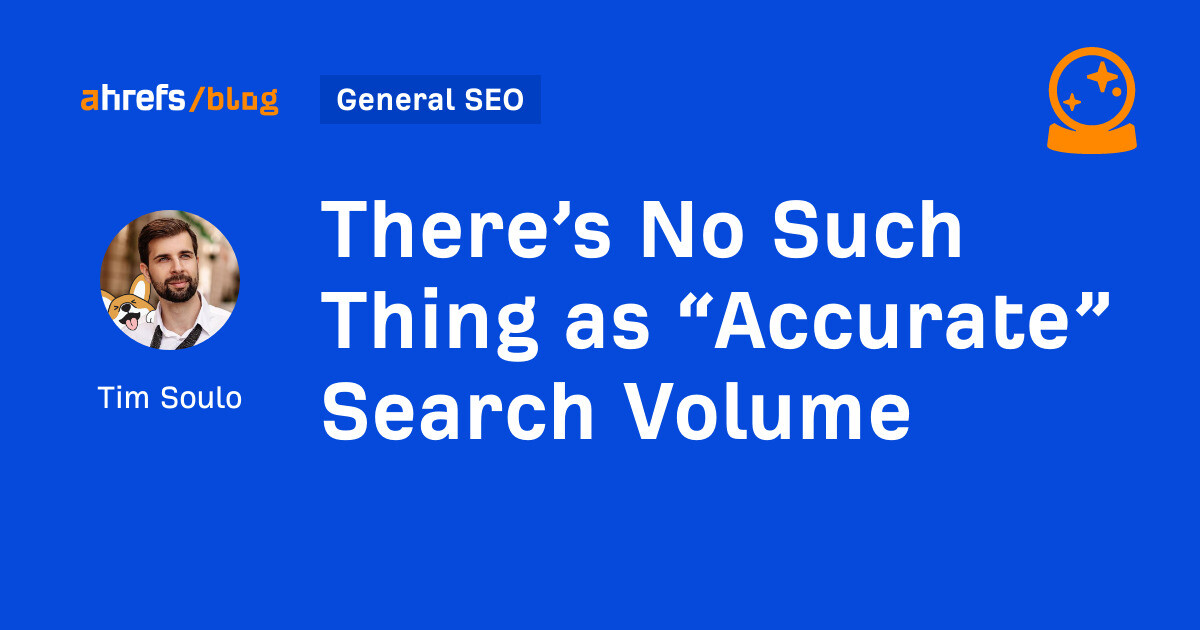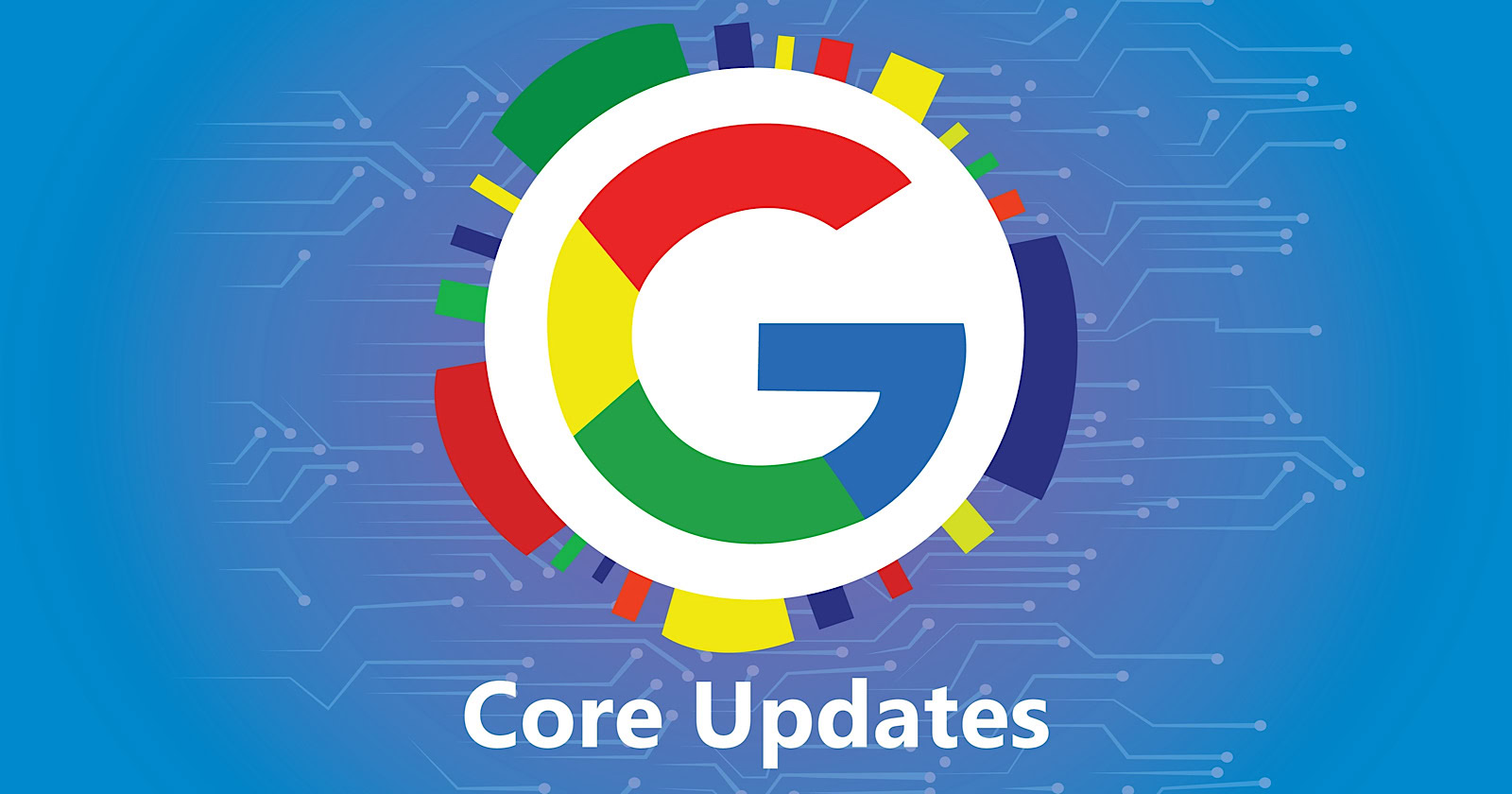SEO
There’s No Such Thing as “Accurate” Search Volume

Which was not the first time I saw us being criticized for the accuracy of our search volume metric.
But here’s the kicker…
There’s NO SUCH THING as an accurate search volume:
- The volumes in Google Keyword Planner aren’t accurate.
- The “Impressions” in GSC aren’t accurate either.
- And the metric itself is just an average of the past data.
I already published a pretty detailed article about the search volume metric back in 2021. But I don’t think too many people have read it.
“Everything that needs to be said has already been said. But since no one was listening, everything must be said again.”
So let me address this topic from a whole new angle.
First of all, what do SEOs even mean when they ask for search volumes to be “accurate?”
Well, the less experienced folks just want the metrics in third-party tools to match what they see in Google Keyword Planner (GKP).
But the more experienced ones already know all Google Keyword Planner’s Dirty Secrets:
- The numbers are rounded annual averages.
- Those averages are then assigned to “volume buckets.”
- Keywords with similar meaning are often grouped together and their search volume summed up.
In other words, the search volume numbers that you see in GKP are very imprecise. And once SEOs learn that, they no longer use GKP as their baseline of accuracy.
They use GSC.
Ok. So the numbers in GKP are rounded and bucketed and clustered together and all that. But Google Search Console (GSC) shows you the actual impressions for a given keyword, right?
Well, did you know that a simple rank-tracking tool can easily pollute your GSC impressions?
Think of how many different “robots” might be scraping the search results for a given keyword, and therefore giving you a fairly inaccurate impression of its real (human-driven) search volume.
And besides, in order to see the actual monthly search volume your page has to be ranking at the top 10 for thirty days straight. And it should rank nationwide, just in case the search results might differ based on the location.
On top of that, I’m sure GSC is no different from any other analytics tool in the sense that it might have certain discrepancies in “counting” those impressions. I mean, go compare the “Clicks” you see reported by GSC with your server log files. I bet the numbers won’t match.
How much time do you think would pass between you selecting a certain keyword to rank for and actually having your page rank at the top of Google for it?
According to our old research, it could be anywhere from two months to a year for a newly published page to get to the top. Don’t you think the monthly search volume of a given keyword will change by then?
That’s actually the exact reason why we’ve added search volume forecasting to our Keywords Explorer tool. It uses past data to project what would likely happen to search volume in the next 12 months:
Is it accurate? No.
But does it help to streamline your keyword research and make better decisions? Absolutely.
Let’s do a thought experiment and imagine that there was an SEO tool which would give you a highly precise search volume for any keyword. What would you use it for? Would you be able to accurately predict your search traffic from that keyword?
No!
You can’t know for sure at which position your page will end up ranking. Today it’s #3, tomorrow it’s #5, the day after is #1. Rankings are volatile and you rarely retain a given position for a long enough period of time.
And even if you did: you can’t get precise data on the click-through rate (CTR) of each position in Google. Each SERP is unique, and Google keeps rolling out more and more SERP features that steal clicks away. So even if you knew precisely the search volume of a keyword and the exact position where your page would sit… you still would not be able to calculate the accurate amount of search traffic that you’ll get.
And finally…
Pages don’t rank for a single keyword! Seven years ago we published a study showing that a typical page that ranks at the top of Google for some keyword would actually rank for about a thousand more related keywords.
So what’s the point of trying to gauge your clicks from a single keyword, when you’ll end up ranking for a thousand of them all at the same time?
And the takeaway from all this is…
Here at Ahrefs we spend a tremendous amount of time, effort and resources to make sure our keyword database is in good shape, both in terms of its coverage of existing search queries, and the SEO metrics we give you for each of these keywords.
None of our SEO metrics are “accurate” though. Not search volume, nor keyword difficulty, nor traffic potential, you name it.
But none of them can be.
They’re designed to be “directionally accurate.” They give you an overall idea of the search demand of a given keyword and if it’s a lot higher (or lower) compared to some other keywords which you are considering.
You can’t use those metrics for doing any precise calculations.
But hundreds of thousands of SEO professionals around the world are using these exact metrics to guide their SEO strategies and they get precisely the results that they expect to get.
SEO
Google March 2024 Core Update Officially Completed A Week Ago

Google has officially completed its March 2024 Core Update, ending over a month of ranking volatility across the web.
However, Google didn’t confirm the rollout’s conclusion on its data anomaly page until April 26—a whole week after the update was completed on April 19.
Many in the SEO community had been speculating for days about whether the turbulent update had wrapped up.
The delayed transparency exemplifies Google’s communication issues with publishers and the need for clarity during core updates
Google March 2024 Core Update Timeline & Status
First announced on March 5, the core algorithm update is complete as of April 19. It took 45 days to complete.
Unlike more routine core refreshes, Google warned this one was more complex.
Google’s documentation reads:
“As this is a complex update, the rollout may take up to a month. It’s likely there will be more fluctuations in rankings than with a regular core update, as different systems get fully updated and reinforce each other.”
The aftershocks were tangible, with some websites reporting losses of over 60% of their organic search traffic, according to data from industry observers.
The ripple effects also led to the deindexing of hundreds of sites that were allegedly violating Google’s guidelines.
Addressing Manipulation Attempts
In its official guidance, Google highlighted the criteria it looks for when targeting link spam and manipulation attempts:
- Creating “low-value content” purely to garner manipulative links and inflate rankings.
- Links intended to boost sites’ rankings artificially, including manipulative outgoing links.
- The “repurposing” of expired domains with radically different content to game search visibility.
The updated guidelines warn:
“Any links that are intended to manipulate rankings in Google Search results may be considered link spam. This includes any behavior that manipulates links to your site or outgoing links from your site.”
John Mueller, a Search Advocate at Google, responded to the turbulence by advising publishers not to make rash changes while the core update was ongoing.
However, he suggested sites could proactively fix issues like unnatural paid links.
“If you have noticed things that are worth improving on your site, I’d go ahead and get things done. The idea is not to make changes just for search engines, right? Your users will be happy if you can make things better even if search engines haven’t updated their view of your site yet.”
Emphasizing Quality Over Links
The core update made notable changes to how Google ranks websites.
Most significantly, Google reduced the importance of links in determining a website’s ranking.
In contrast to the description of links as “an important factor in determining relevancy,” Google’s updated spam policies stripped away the “important” designation, simply calling links “a factor.”
This change aligns with Google’s Gary Illyes’ statements that links aren’t among the top three most influential ranking signals.
Instead, Google is giving more weight to quality, credibility, and substantive content.
Consequently, long-running campaigns favoring low-quality link acquisition and keyword optimizations have been demoted.
With the update complete, SEOs and publishers are left to audit their strategies and websites to ensure alignment with Google’s new perspective on ranking.
Core Update Feedback
Google has opened a ranking feedback form related to this core update.
You can use this form until May 31 to provide feedback to Google’s Search team about any issues noticed after the core update.
While the feedback provided won’t be used to make changes for specific queries or websites, Google says it may help inform general improvements to its search ranking systems for future updates.
Google also updated its help documentation on “Debugging drops in Google Search traffic” to help people understand ranking changes after a core update.
Featured Image: Rohit-Tripathi/Shutterstock
FAQ
After the update, what steps should websites take to align with Google’s new ranking criteria?
After Google’s March 2024 Core Update, websites should:
- Improve the quality, trustworthiness, and depth of their website content.
- Stop heavily focusing on getting as many links as possible and prioritize relevant, high-quality links instead.
- Fix any shady or spam-like SEO tactics on their sites.
- Carefully review their SEO strategies to ensure they follow Google’s new guidelines.
SEO
Google Declares It The “Gemini Era” As Revenue Grows 15%

Alphabet Inc., Google’s parent company, announced its first quarter 2024 financial results today.
While Google reported double-digit growth in key revenue areas, the focus was on its AI developments, dubbed the “Gemini era” by CEO Sundar Pichai.
The Numbers: 15% Revenue Growth, Operating Margins Expand
Alphabet reported Q1 revenues of $80.5 billion, a 15% increase year-over-year, exceeding Wall Street’s projections.
Net income was $23.7 billion, with diluted earnings per share of $1.89. Operating margins expanded to 32%, up from 25% in the prior year.
Ruth Porat, Alphabet’s President and CFO, stated:
“Our strong financial results reflect revenue strength across the company and ongoing efforts to durably reengineer our cost base.”
Google’s core advertising units, such as Search and YouTube, drove growth. Google advertising revenues hit $61.7 billion for the quarter.
The Cloud division also maintained momentum, with revenues of $9.6 billion, up 28% year-over-year.
Pichai highlighted that YouTube and Cloud are expected to exit 2024 at a combined $100 billion annual revenue run rate.
Generative AI Integration in Search
Google experimented with AI-powered features in Search Labs before recently introducing AI overviews into the main search results page.
Regarding the gradual rollout, Pichai states:
“We are being measured in how we do this, focusing on areas where gen AI can improve the Search experience, while also prioritizing traffic to websites and merchants.”
Pichai reports that Google’s generative AI features have answered over a billion queries already:
“We’ve already served billions of queries with our generative AI features. It’s enabling people to access new information, to ask questions in new ways, and to ask more complex questions.”
Google reports increased Search usage and user satisfaction among those interacting with the new AI overview results.
The company also highlighted its “Circle to Search” feature on Android, which allows users to circle objects on their screen or in videos to get instant AI-powered answers via Google Lens.
Reorganizing For The “Gemini Era”
As part of the AI roadmap, Alphabet is consolidating all teams building AI models under the Google DeepMind umbrella.
Pichai revealed that, through hardware and software improvements, the company has reduced machine costs associated with its generative AI search results by 80% over the past year.
He states:
“Our data centers are some of the most high-performing, secure, reliable and efficient in the world. We’ve developed new AI models and algorithms that are more than one hundred times more efficient than they were 18 months ago.
How Will Google Make Money With AI?
Alphabet sees opportunities to monetize AI through its advertising products, Cloud offerings, and subscription services.
Google is integrating Gemini into ad products like Performance Max. The company’s Cloud division is bringing “the best of Google AI” to enterprise customers worldwide.
Google One, the company’s subscription service, surpassed 100 million paid subscribers in Q1 and introduced a new premium plan featuring advanced generative AI capabilities powered by Gemini models.
Future Outlook
Pichai outlined six key advantages positioning Alphabet to lead the “next wave of AI innovation”:
- Research leadership in AI breakthroughs like the multimodal Gemini model
- Robust AI infrastructure and custom TPU chips
- Integrating generative AI into Search to enhance the user experience
- A global product footprint reaching billions
- Streamlined teams and improved execution velocity
- Multiple revenue streams to monetize AI through advertising and cloud
With upcoming events like Google I/O and Google Marketing Live, the company is expected to share further updates on its AI initiatives and product roadmap.
Featured Image: Sergei Elagin/Shutterstock
SEO
brightonSEO Live Blog

Hello everyone. It’s April again, so I’m back in Brighton for another two days of Being the introvert I am, my idea of fun isn’t hanging around our booth all day explaining we’ve run out of t-shirts (seriously, you need to be fast if you want swag!). So I decided to do something useful and live-blog the event instead.
Follow below for talk takeaways and (very) mildly humorous commentary. sun, sea, and SEO!
-

 WORDPRESS7 days ago
WORDPRESS7 days ago7 Best WooCommerce Points and Rewards Plugins (Free & Paid)
-

 MARKETING7 days ago
MARKETING7 days agoBattling for Attention in the 2024 Election Year Media Frenzy
-

 WORDPRESS6 days ago
WORDPRESS6 days ago13 Best HubSpot Alternatives for 2024 (Free + Paid)
-

 MARKETING6 days ago
MARKETING6 days agoAdvertising in local markets: A playbook for success
-

 SEO7 days ago
SEO7 days agoGoogle Answers Whether Having Two Sites Affects Rankings
-

 SEARCHENGINES6 days ago
SEARCHENGINES6 days agoGoogle Core Update Flux, AdSense Ad Intent, California Link Tax & More
-

 AFFILIATE MARKETING7 days ago
AFFILIATE MARKETING7 days agoGrab Microsoft Project Professional 2021 for $20 During This Flash Sale
-

 PPC4 days ago
PPC4 days ago10 Most Effective Franchise Marketing Strategies




![The Current State of Google’s Search Generative Experience [What It Means for SEO in 2024] person typing on laptop with](https://articles.entireweb.com/wp-content/uploads/2024/04/The-Current-State-of-Googles-Search-Generative-Experience-What-It.webp-400x240.webp)
![The Current State of Google’s Search Generative Experience [What It Means for SEO in 2024] person typing on laptop with](https://articles.entireweb.com/wp-content/uploads/2024/04/The-Current-State-of-Googles-Search-Generative-Experience-What-It.webp-80x80.webp)







